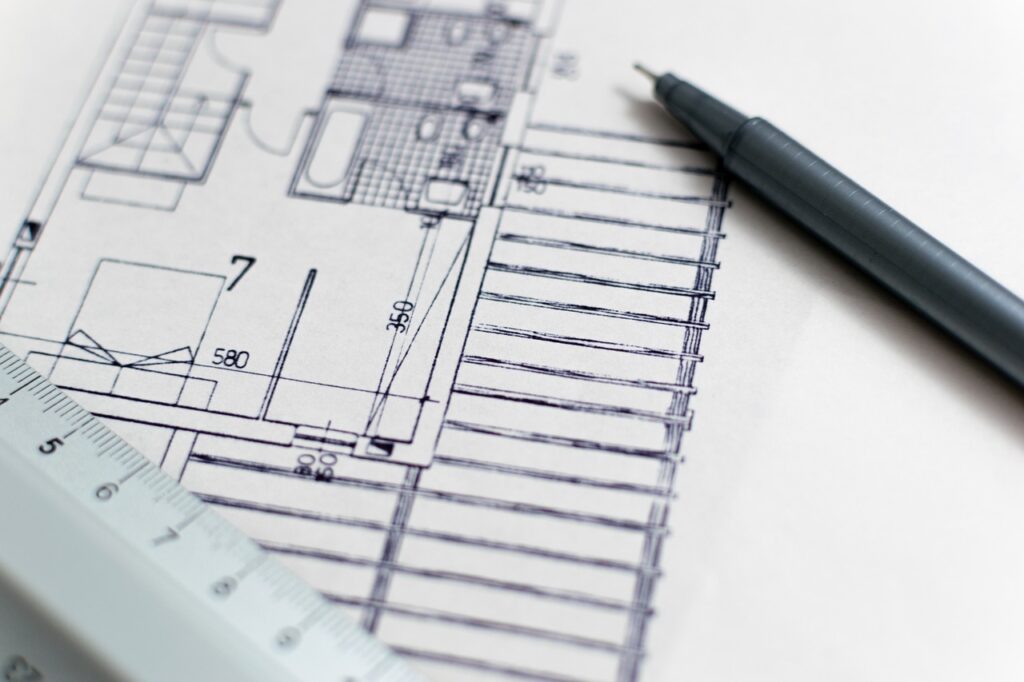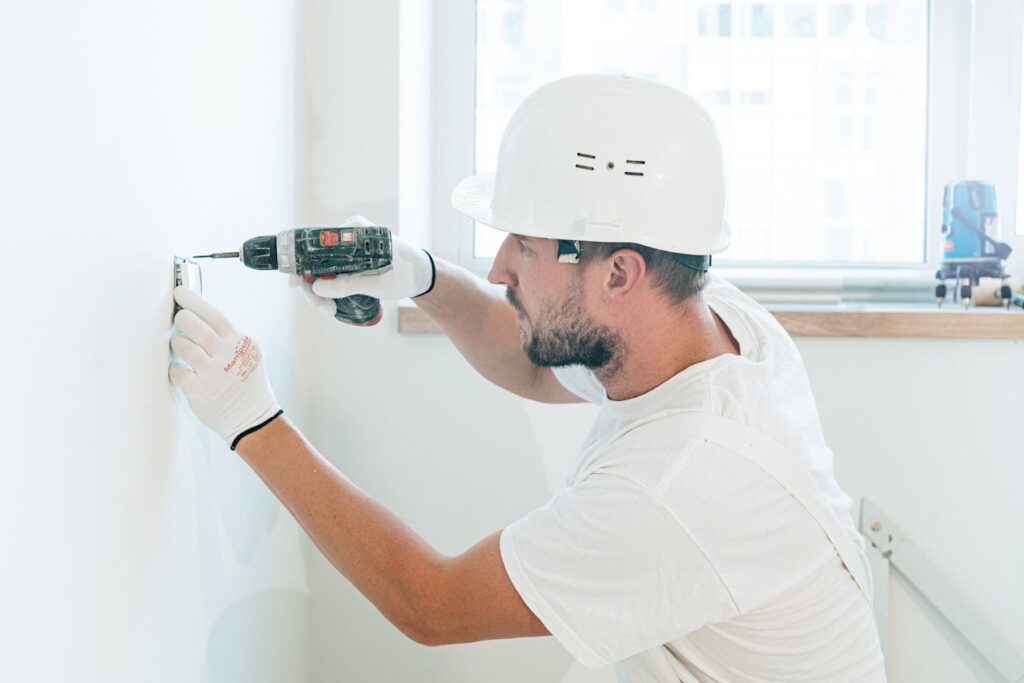The population in Texas has increased by roughly ~6% since 2020, earning a title as the third-fastest growing state in the country.
Naturally, real estate values have grown alongside the population, as have new construction permits.
According to the US Census Bureau, there were 19,859 new construction permits issued in Texas in July of 2024 (an almost 300% increase from the 7,721 permits issued in July of 2009).
The data is clear: More and more people are moving to Texas, and more and more buyers are starting to discover the advantages of building their own homes.
A new construction allows you to design a space that perfectly fits your needs and avoid the costly repairs associated with aging homes. If you’re like most people and don’t have hundreds of thousands of dollars lying around to build a new home, construction loans in Texas can help you achieve this next milestone.
In this guide, we’ll be exploring all you need to know about construction loans in Texas. From what they are, how they work to what you need to qualify, and alternatives, we’ve got you covered. Defy specializes in alternative financing like DSCR loans and other non-qm lending options offering flexible solutions for borrowers who don’t fit the traditional mold. More on those options below.
Now, let’s get started.
What Is a Construction Loan?
A construction loan is a short-term financing option that’s used to cover the costs of building a new home or redeveloping an existing property.
Since it’s short-term, the loan is used for a specific period, typically 6-12 months, and during construction, most lenders allow you to make interest-only payments.
Construction loan proceeds are usually disbursed in stages, with funds being released as different phases of the project are completed. Oftentimes, these loans require detailed project plans and budgets to reassure the lender that the property will be successfully built. After the construction is finished, most borrowers transition their construction loan into a standard mortgage, which allows them to have a longer loan term.
Please note that we currently do not offer residential ground-up construction loans from primary residences at Defy Mortgage, and we do not provide owner-builder loans for primary residences. Builder approvals are required for select financing options for primary residences.
Construction Loans in Texas
In 2022, Texas became the number one state with the highest new home construction rate. Almost one-fourth, 22.5% to be exact, of all occupied housing in Texas were built in 2010 or after. With a total of approximately 11 million homes across the state at that time, this means that almost 2.5 million homes were 12 years old or newer.
In the same year, Texas’ population hit just over 30 million residents, becoming the second-most-populous state in the U.S. By 2036, Texas is forecasted to gain an additional 3-5 million residents.
Both the current and expected boost in population is creating a high demand for housing to keep up with the influx of people. If you’ve been thinking of building your own home, there’s no better time than now. Avoid bidding wars on overpriced, existing properties and watch the value of your new construction appreciate over the years. All while keeping your kids safe from hazards like asbestos, lead paint, faulty electrical, and more.

Types of Construction Loans
It’s important to understand the different types of construction loans available to you. The loan you choose will depend on your specific needs, timeline, and financial situation. Below are some common construction loan options in Texas:
One-Time Close Construction Loan
Also known as a construction-to-permanent loan, this type of loan combines both the construction financing and the mortgage into a single loan. You only go through the closing process once, which can save on closing costs and simplify the entire process. Once the home is built, the loan converts into a standard mortgage, avoiding the need for two separate loans.
Two-Time Close Construction Loan
This loan option requires two separate closings—one for the construction loan and one for the mortgage. It offers more flexibility since you can shop for a different lender or loan terms once the construction phase is complete. However, it also comes with additional costs and paperwork due to the two closings.
Lot Loans
If you’ve found the perfect piece of land but aren’t ready to build yet, a lot loan can help you finance the purchase of the land. This type of loan is often used by people who want to secure their dream location before beginning the construction process.
Construction-Only Loans
A construction-only loan provides funds solely for the construction of your home. These loans are typically short-term and must be paid off when the home is completed. You will need to secure a separate mortgage to pay off the construction loan and finance your new home long-term.
Owner-Builder Loans
If you’re a licensed contractor or experienced builder and plan to take on the construction of your home yourself, an owner-builder loan allows you to finance the project. Lenders tend to be more cautious with these loans, as the borrower assumes more risk by managing the construction process independently.

Renovation Loans
If you’re looking to make significant renovations to an existing property rather than building from the ground up, a renovation loan may be a good fit. These loans can finance both the purchase of a home and the costs associated with major renovations. These are also called “fix and flip” or “fix and hold” loans.
Construction Loan Process: A Step-by-Step Overview
Building a home is an exciting journey, but it can be complex. Here’s a step-by-step breakdown of the construction loan process to help you navigate it smoothly:
Pre-Approval and Application
Before you begin construction, it’s important to get pre-approved for a loan. This will help determine how much you can borrow and give you a clear picture of your budget. You’ll need to gather key financial documents such as tax returns, bank statements, and proof of income. Additionally, reviewing your credit score and addressing any issues ahead of time can improve your loan terms. Once you’re ready, submit your application to start the approval process.
Loan Approval and Closing
After you submit your application, the lender will review your financials and credit report. They’ll also conduct an appraisal of the land or existing property to ensure its value aligns with the loan amount. Upon approval, you’ll move on to closing, where loan documents are signed, and any initial fees are paid. After closing, the lender will release the funds in stages as the construction progresses.

Disbursement of Funds
The funds for your construction loan are disbursed in increments, called draws, rather than a lump sum. The contractor will receive funds as each phase of the project is completed, ensuring the work is done according to the project timeline. You will make interest-only payments on the amount disbursed until the construction is finished.
Construction Loan Texas Requirements
Like any loan, construction loans come with specific requirements. Understanding these requirements will help ensure you qualify and receive the best possible terms.
Credit Score and Down Payment Requirements
Most lenders will require a credit score of 680-700 or higher for construction loans. Additionally, a larger-than-average down payment is often required.
A higher credit score and larger down payment can reduce your interest rate and minimize fees.
Additionally, one of the primary benefits that Defy offers to non-traditional borrowers (like the self-employed and small business owners) is our tax return requirement – we have none. Borrowers can apply – and be approved – for other loan options like DSCR loans or Bank Statement loans, without providing us with their tax returns. We only need to see bank statements or other proof of income, depending on the loan type.
Choosing a Construction Loan Texas Lender
Selecting the right lender is crucial. Each lender has different loan terms, interest rates, and levels of customer service, so it’s important to compare your options.
Factors to Consider
When evaluating lenders, look at the interest rates and fees they offer. Lower rates can save you thousands over the course of the loan. You’ll also want to review the loan terms, such as the length of the loan, repayment schedule, and flexibility in adjusting the loan. Lastly, it’s important to choose a lender with a strong reputation and good customer service, as they’ll be your partner throughout the home-building process.
Top 5 Construction Lenders in Texas (Or Alternative)
- American National Bank & Trust – Known for its personalized service, ANB&T offers competitive rates and flexible terms for construction loans.
- Randolph-Brooks Federal Credit Union (RBFCU) – RBFCU is a large credit union that provides a variety of construction loan options.
- Amegy Bank – Amegy Bank offers a range of construction loan products, including one-time close loans and construction-to-permanent financing. They have a strong presence in Texas and offer competitive rates.
- Texas Regional Bank – TRB is a community bank that provides tailored construction loan solutions for both residential and commercial projects. They emphasize local knowledge and personalized service.
- Defy Mortgage (DSCR Options) – Defy Mortgage is a non-bank lender specializing in self-employed individuals, small business owners, and others who have been left behind by traditional lenders. Check out our reviews here.

Construction Loan Texas FAQs
- What is the difference between a construction loan and a mortgage?
A construction loan is a short-term loan used to finance the building or remodeling of a property. Once the project is completed, it’s usually converted into a long-term mortgage.
- How long does the construction loan process take?
The loan approval process can take a few weeks to a month, depending on the lender. The construction phase itself typically lasts 6-12 months.
- What if something happens to the home in the middle of construction?
You’ll need a builder’s risk insurance policy to protect the home during the construction phase. This policy will cover any damage or accidents that occur while the home is being built.
- What are the closing costs for a construction loan?
Closing costs can be higher than for a traditional mortgage due to fees for inspections, appraisals, and other construction-related expenses. Unfortunately, this number varies but 3-6% of the purchase price is the industry average.
- What are the repayment terms?
During construction, you’ll often pay interest-only payments. Once the project is complete, the loan may convert into a fixed-rate mortgage with regular principal and interest payments.
- What happens if the project goes over budget or is delayed?
We’ll discuss contingency plans with you to address potential cost overruns or delays.
Get Started with Your Construction Loan Application
OR DSCR loan! Defy Mortgage can help you secure the loan you need and explore your other loan options.
Unlike other lenders, we specialize in helping the self-employed and small business owners – groups who have been completely overlooked by traditional mortgage lenders. We don’t require tax returns, just proof of income (usually in the form of bank statements).
If you’d like to learn more, please schedule a time to talk with us 1-on-1. We’d love to answer any questions you have about the process.




